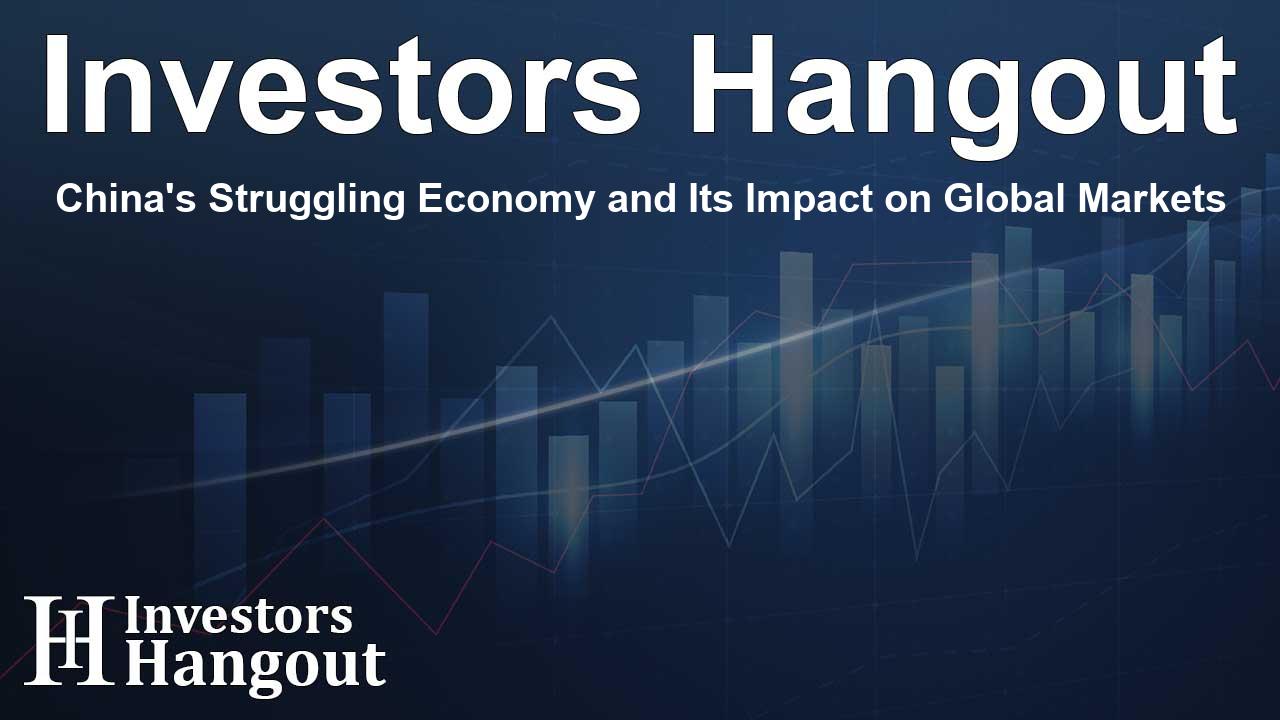China's Struggling Economy and Its Impact on Global Markets

Overview of Economic Challenges
The global financial landscape is witnessing a significant shift, particularly as China grapples with ongoing economic struggles. Recent developments in U.S. markets indicate resilience, yet they are heavily influenced by the state of the Chinese economy. Investors eagerly anticipate how these dynamics will unfold, especially in the wake of China's latest stimulus updates.
The Reaction from U.S. Markets
Even with U.S. Treasury markets closed, U.S. stock futures opened positively. The New York Stock Exchange and Nasdaq remained actively trading, buoyed by optimism surrounding corporate earnings season, particularly following the S&P 500's impressive climb to record highs. Financial sector stocks displayed robust performance, led by significant earnings reports from major banks.
China's Market Uncertainty
Despite initial expectations, China's recent press conference regarding fiscal measures yielded more questions than answers. The government's fiscal minister announced broad measures intended to stabilize the economy, including plans for increased debt and support for key sectors such as housing and consumer spending. However, the lack of specific details left investors uncertain, leading to a volatile trading day.
Economic Indicators from China
Recent economic data from China has raised alarms. Consumer prices showed barely any growth, while factory gate price inflation dropped significantly. This signals potential deflationary risks that could complicate recovery efforts. Furthermore, disappointing export figures and sluggish import growth suggest a cooling economy, impacting manufacturers and their operational strategies.
Impact on Global Trade
China's economic challenges extend beyond its borders, affecting global trade dynamics. Companies are re-evaluating their supply chains and order placements due to shifting tariffs and trade policies. The slowdown in import growth raises concerns about the appetite for foreign goods, which has implications for global manufacturers and suppliers.
Geopolitical Tensions
Geopolitical factors also play a role in shaping market sentiment. Recent military activities by China near Taiwan have sparked international tensions, drawing responses from both Taiwan and the U.S. Such issues can create volatility, influencing investor confidence and market performance.
Industry Responses and Forecasts
Corporations are adapting to these changes, particularly within the technology sector. Taiwanese chipmaker TSMC, a leader in chip production for artificial intelligence applications, is expected to report significantly higher profits due to surging demand. This indicates ongoing innovation and investment in critical sectors even amidst broader economic uncertainty.
Energy Market Reactions
The oil market has also reacted to the mixed economic data from China. Prices softened as concerns over demand surfaced, reflecting the broader implications of economic performance in China and the Middle East. In spite of geopolitical tensions, energy prices have remained relatively stable.
Monitoring U.S. Inflation
The U.S. continues to observe inflation trends closely. Recent inflation data suggested a hotter-than-anticipated increase, yet energy price stability remains a focus. Investors are watching these indicators closely, especially as they influence Federal Reserve policies and market reactions.
European Central Bank Outlook
Looking to Europe, the European Central Bank is poised to make significant decisions that could influence markets globally. Anticipation of further interest rate cuts reflects a broader strategy to combat economic uncertainty, impacting investor sentiment across various sectors.
The Road Ahead for Markets
The path ahead remains uncertain, with earnings season in full swing and political tensions intensifying as national elections approach. Markets are poised for potential volatility as companies prepare to release their quarterly results amidst these challenging conditions. The near-term outlook will likely depend on both corporate performance and geopolitical developments.
Frequently Asked Questions
What are the key concerns regarding China's economy?
China faces challenges such as low consumer price growth, declining factory prices, and disappointing export performance, suggesting potential deflation risks.
How is the U.S. responding to China's economic situation?
The U.S. stock market remains resilient, with investors focused on corporate earnings, but global trade dynamics are at stake due to China's struggles.
What impact do geopolitical tensions have on markets?
Geopolitical tensions, particularly regarding China and Taiwan, can create volatility and influence investor sentiment in financial markets.
What are analysts predicting for the future of oil prices?
Analysts suggest that oil prices may stabilize as concerns over demand persist amid economic uncertainties in China and the Middle East.
What significant earnings should investors watch for?
Investors are monitoring major companies releasing earnings, including TSMC, to gauge industry health and market direction amid ongoing uncertainties.
About The Author
Contact Addison Perry privately here. Or send an email with ATTN: Addison Perry as the subject to contact@investorshangout.com.
About Investors Hangout
Investors Hangout is a leading online stock forum for financial discussion and learning, offering a wide range of free tools and resources. It draws in traders of all levels, who exchange market knowledge, investigate trading tactics, and keep an eye on industry developments in real time. Featuring financial articles, stock message boards, quotes, charts, company profiles, and live news updates. Through cooperative learning and a wealth of informational resources, it helps users from novices creating their first portfolios to experts honing their techniques. Join Investors Hangout today: https://investorshangout.com/
The content of this article is based on factual, publicly available information and does not represent legal, financial, or investment advice. Investors Hangout does not offer financial advice, and the author is not a licensed financial advisor. Consult a qualified advisor before making any financial or investment decisions based on this article. This article should not be considered advice to purchase, sell, or hold any securities or other investments. If any of the material provided here is inaccurate, please contact us for corrections.
